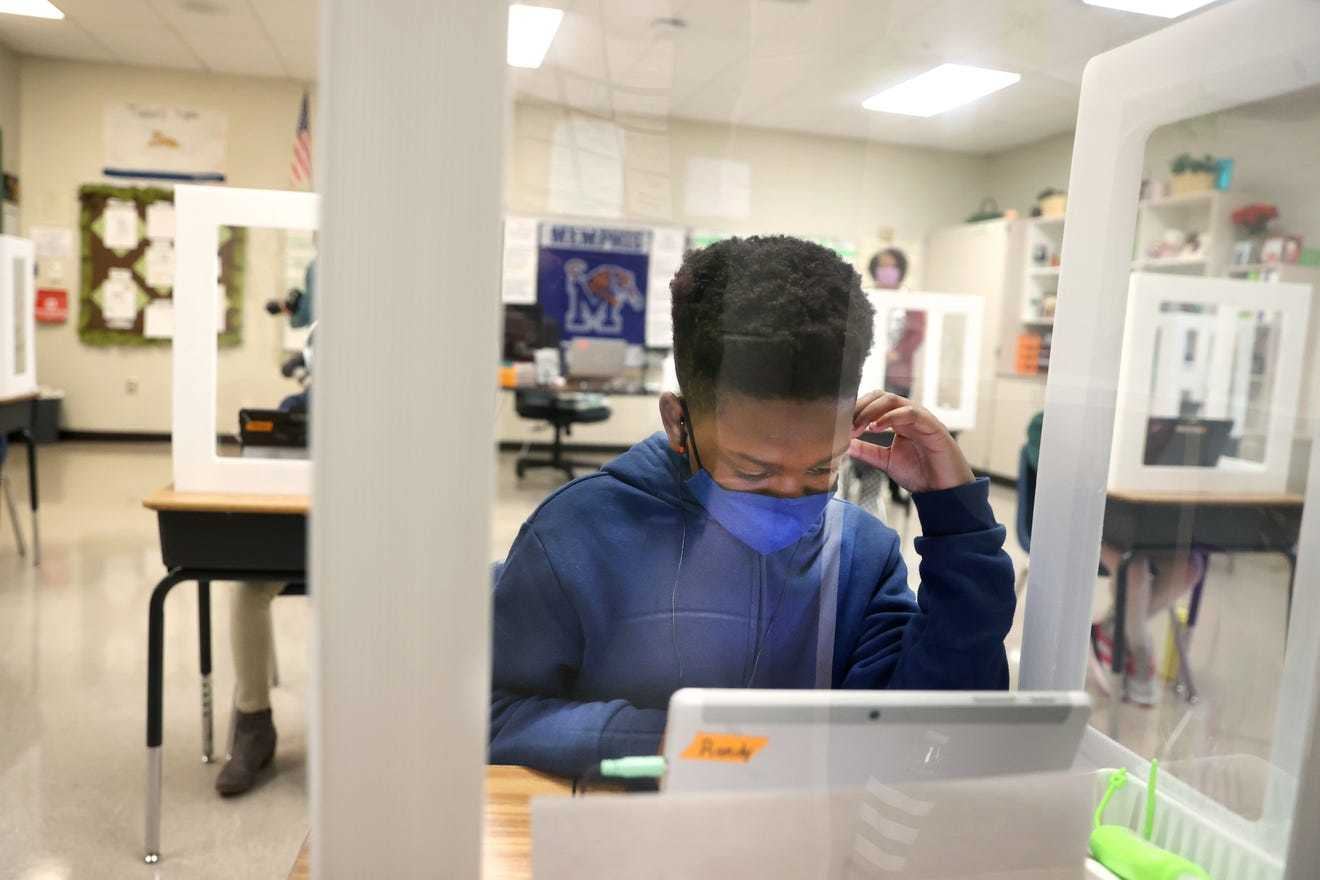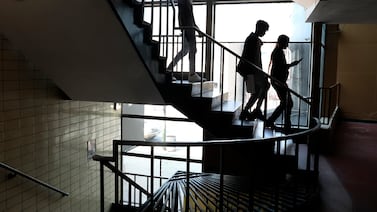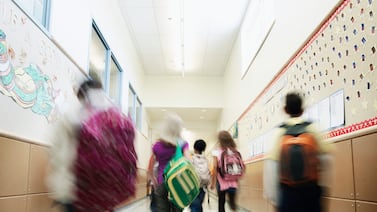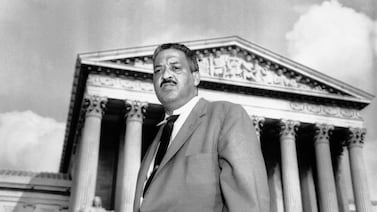Julius Blackburn, assistant principal of Fairley High School, feels powerless and exhausted.
He has tried to make sure the students and staff at his Memphis public charter school, which is part of the national Green Dot network, feel supported and safe in their classrooms, but the latest COVID surge due to the omicron variant is pushing his limit.
Memphis COVID cases hit the highest rate of the pandemic on Sunday. The school doesn’t have enough substitutes to fill the gaps, forcing administrators like Blackburn and already overburdened teachers to cover classrooms however they can, even if it means sacrificing prep and lunch periods, or doing what he calls “getting creative” by combining classes in auditoriums and gymnasiums.
Additionally, his teachers, many of whom are older or have health conditions that put them at higher risk of serious complications from COVID, are frightened.
“It’s almost like we are firefighters now,” Blackburn said. “We’re going straight into the fire and all we have is masks to protect us. And that’s on top of the already uphill battle we face in urban education any day.”
The Shelby County Health Department recorded 3,061 new COVID cases on Friday, 637 among children under the age of 18. It’s a slight decrease from Sunday’s record high. As of Friday, over 25,000 county residents — including nearly 5,000 children — are actively infected with the virus. The test positivity rate, at nearly 42% as of Friday, is the highest since the pandemic began in March 2020.
Across Memphis, many student and teacher desks sit empty. Two or three classes are combined in makeshift classrooms in libraries or cafeterias. And feelings of fear and frustration plague school staff, students, and parents.
The Memphis area’s situation is only going to get worse, local officials cautioned at a grim Shelby County COVID task force news conference Thursday. The county is unable to put a mask mandate or other similar COVID mitigation strategies in place unless Gov. Bill Lee declares a COVID emergency, said Michelle Taylor, health department director.
“We are going to have some very difficult days ahead here in Memphis and Shelby County, as we are experiencing across the country,” said Doug McGowan, Memphis’ chief operating officer. “It is incumbent on all of us individually to do what we can so we do not add to the burden that our local hospital systems already have.”
Omicron has caused chaos and upheaval at schools across the country in the first week of the new year. Some school systems, like Detroit and Newark, have shifted to online learning through at least Jan. 14. In Chicago, the teachers union voted late Wednesday to cancel in-person classes until Jan. 18 or COVID safety conditions improve.
Tennessee school districts don’t have that option. Only individual schools or classrooms can receive a waiver from the state Department of Education to go virtual for five calendar days — recently shortened from seven days based on new federal and state guidance cutting the recommended isolation period to five days for people testing positive for COVID.
Calling on the governor and state lawmakers to reconsider the law, Danette Stokes, president of Memphis’ United Education Association, said teachers are rising to the latest challenges of pandemic education, but they’re overwhelmed. Educators worry about potential ramifications that combining classrooms may have.
“It’s not conducive to learning, and it just makes no sense for local leadership not to be able to make that decision (to shift to remote learning) when it’s not safe to be in schools,” Stokes said. “For now, we’re just doing the best that we can with what we have and we’re praying this pandemic will go away — or at least that we can get it under control.”
Annitriniece Napper, president of the Memphis-Shelby County Education Association, echoed Stokes and said several members have told her that as many as 20 staff members in a single school are out due to COVID. In turn, classes are combined, and they’re teaching more than 30 students at a time.
When teachers have more students than usual, “learning is not going to be where it should be,” Napper said. “At that point, you’re just trying to maintain discipline in your classroom.”
Post-winter break school attendance is usually low, said four-year teacher Sophia Johnson, but this year appears to be worse than normal. Johnson, who teaches eighth and ninth grade English at the Memphis School of Excellence charter in Cordova, estimated at least five students were absent in each of her classes on Tuesday, their first day back. That is high absenteeism compared to after this year’s early fall and Thanksgiving breaks, when most of her students returned to school on the first day.
Not all are out because of COVID — some traveled for the holidays and returned late — but Johnson worries about her students’ learning. Many are still behind after all the disruptions of last year, and she worries the omicron spike will make the situation worse.
Since school resumed after winter break, the message of Tennessee’s largest school district has been to “stay the course.”
Most COVID precautions remain in place at schools, though the district has cut quarantine requirements. Students and staff members who are fully vaccinated and boosted are encouraged but no longer required to quarantine if they’re deemed a close contact of someone with COVID. Those who are unvaccinated only have to quarantine for five days rather than seven. The district also has increased COVID testing in light of the post-holiday spike in cases.
However, no schools have had to close due to a staffing shortage or COVID spread, district spokesperson Jerica Phillips said Friday. Between Dec. 16 and Jan. 6, the district reported 657 new cases among students and 491 among staff, according to its COVID dashboard updated Friday.
Angela Whitelaw, deputy superintendent of schools and academic support, emphasized that combining classes in larger spaces is temporary.
“Yes, there have been disruptions. But we have a plan in place,” Whitelaw said. “Our students are resilient and our teachers are resilient and flexibility has been at the core of our safe plan.”
Phillips said Superintendent Joris Ray plans to petition the state asking that all districts be held harmless in state assessments, as he did last school year, Phillips said.
Memphis parents such as Mandy Reynolds are concerned.
“It’s nerve-wracking, knowing how high the cases are and they’re packing the schools the way they are,” said Reynolds, whose daughter is a ninth grader at White Station High School.
While she’s grateful the district still has a mask requirement, and she’s been able to equip her daughter with KN95 masks for school, she is preparing for when they get COVID, rather than if they get it.
Reynolds wishes her daughter could opt into virtual learning. While she understands teaching in two formats is an added burden on teachers and virtual learning isn’t ideal for all children, she feels her daughter does well and would be safer.
Joy Westmoland also wishes online learning was an option for her five children in Memphis charter schools.
“It’s like we’re headed into the middle of a storm and we’re not going to use any umbrellas or rain boots,” she said.








